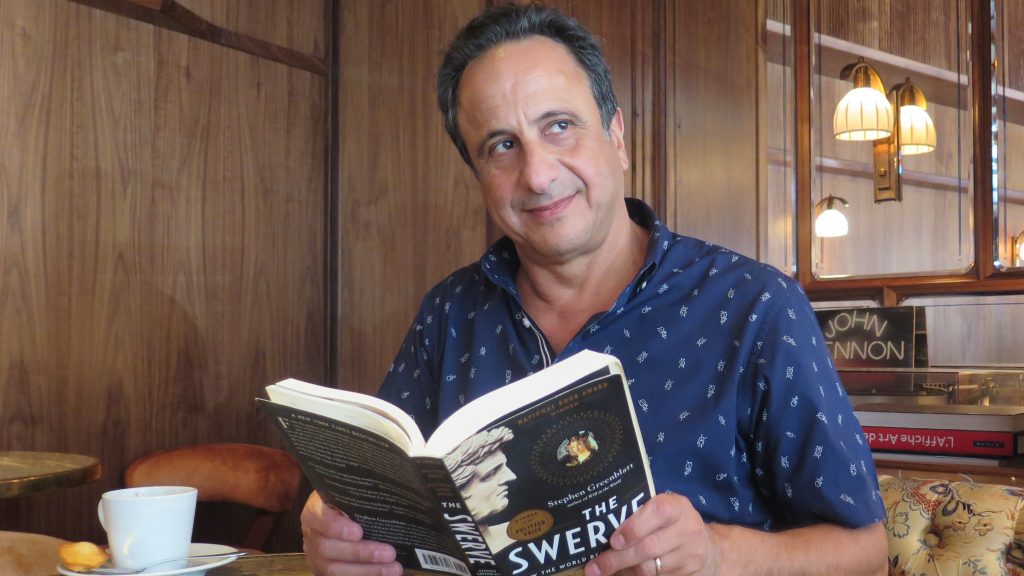
Image Credit: Kasia Wandycz.
Anouar Majid is the Founder and Editor for Tingis Magazine. Majid has authored several books on Islam and the West, and has been on Bill Moyers Journal and Al Jazeera television. He is the Founding Director of the Center for Global Humanities. Here we talk about Islam and the West.
Scott Douglas Jacobsen: We have done an interview for Canadian Atheist. We have one, forthcoming in Conatus News as well. We talked about another series focused on the “grand theme” of Islam and the West, which is, of course, an area you have published a great deal in.
I would hope for this to remain conversational, as a dialogue, where I aim to learn from you. To begin, what demographics can provide an image of Islam around the world and the United States?
Anouar Majid: The number of Muslims around the world is fast approaching the 2 billion mark. (I think it is now above 1.8 billion.) Like Christianity, Islam is everywhere, on all continents, and in most countries.
Jacobsen: What core beliefs define a Muslim and a non-Muslim? What core do beliefs define someone from the West, a westerner?
Majid: Muslims believe in one God (called Allah in Arabic) who created everything and to whom we are accountable after death. To be good in the eyes of Allah, one must have absolute faith in him and his prophet Mohammed, pray at least five times a day, fast at least one month a year, give at least 10 percent of one’s wealth to charity, and go on pilgrimage to Mecca, at least once in a lifetime, if possible.
There is another sub-set of obligations, but the aforementioned are known as the pillars of the religion. A Westerner, in this sense, is not the opposite of a Muslim, since she can be secular or religious. In fact, millions of Muslims are Westerners, in the sense that they live and are citizens of Western nations.
Generally speaking, though, we use the term in the sense that it includes a set of ideas that originated in Western Europe, including belief in secular government, human rights, rule of law, democracy, freedom of speech, and other traits.
Jacobsen: Where do these belief sets tend to conflict?
Majid: In Islam, all power belongs to Allah, and the role of Muslims is to execute Allah’s wishes. Muslims are servants of Allah and, as such, cannot legislate on their own. Everything, according to devout Muslims, has been prescribed in the Koran and the Hadith (compilations of sayings and deeds attributed to the prophet Mohammed).
In principle, notions like “democracy” or “republic” do not exist in Islamic political thought. Sovereignty belongs to Allah only, not to nations or individuals. Nowadays, Muslims use the concept known as “shura” (advisors or consultants) as an example of how Islam makes room for democracy, but being an advisor to a caliph is not quite like voting for candidates running for office on a socialist platform, for instance.
Also, nations like Saudi Arabia do not believe in a human-made constitution, believing, as most Muslims do, that the Koran is sufficient in that regard.
Jacobsen: How does this conflict, in general terms and keeping in mind the demographic question at the outset, play out in American culture? Sometimes, as described in “Muslims in the West: Chronicle of a Crisis Foretold,” this can lead to lethal outcomes based on internal conflicts, in the individual.
Majid: I am glad you mention that article. The clash of cultures, if not of civilizations, is quite real, although it is not fashionable to say this in polite circles. People who grow up as devout Muslims in Muslim-majority nations have a hard time assimilating into Western secular societies, even though most Muslims covet the West’s education, products, and even freedoms.
From a strictly cultural point of view, though, there is no doubt that a real conflict exists between Islam and the West. There are other aggravating (or attenuating) factors, but this is not our focus here.
Jacobsen: Thank you for the opportunity and your time, Anouar.
References
Jacobsen, S.D. (2017, December 28). Interview with Anouar Majid – Founding Director, Center for Global Humanities. Retrieved from https://www.canadianatheist.com/2017/12/majid/.
Majid, A. (2016, January 10). Muslims in the West: Chronicle of a Crisis Foretold. Retrieved from http://www.tingismagazine.com/opinion/muslims_in_the_west_chronicle_of_a_crisis_foretold.html.
Image Credit: Kasia Wandycz.
Scott Douglas Jacobsen founded In-Sight Publishing and In-Sight: Independent Interview-Based Journal.